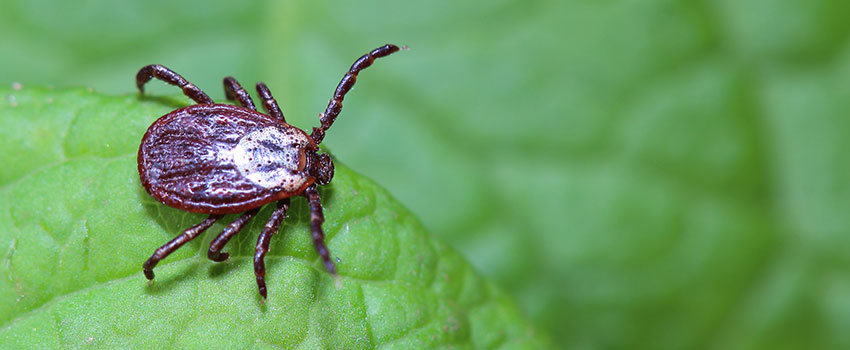
The Great Outdoors is a wonderful place to be, especially during a classically warm and sunny Georgia summer. While you are out and about enjoying all that our area has to offer, though, you need to be on the lookout for ticks and potential tick bites.
Ticks can be found at any time of the year in our southern climate, but they are much more prevalent from the spring to early fall. While not all tick bites are dangerous, some can be, so avoiding tick bites whenever possible is always ideal.
Our AFC Urgent Care Dalton team explains how to avoid tick bites and what to do if you find one embedded in your skin below, so read on to learn more.
What Should I Do to Avoid Ticks?
Ticks can be found virtually anywhere outside. They can live in shrubs, long grasses and even on the leaves of trees! If you brush by any of these, the tick can simply attach itself to your clothing or hair and start crawling around on your skin.
The best way to avoid ticks is to avoid the areas that they are usually present. Stay in the center of trails while you are hiking, avoid walking through long grass and check your skin often after being outside. If you do discover a tick, you should prioritize getting it off your skin as quickly as possible.
Tips for Tick Removal
- Use a clean tweezers and pull slowly and steadily away from the skin.
- Do not twist as you pull.
- Take a picture of the tick.
- Dispose in the garbage in a piece of tape or flush in the toilet.
- Wash your hands and the bite site thoroughly.
Will a Tick Bite Make Me Sick?
Not all ticks are carrying Lyme disease, but some are. Unfortunately, there is no way of knowing in the moment that the tick that bit you was infected. The good news is that ticks carrying Lyme disease need to be attached to you for at least 36 hours to transmit the disease, so if you catch it right away, your chances of avoiding illness are pretty good.
However, Lyme disease does still affect around 30,000 people every year. Once the tick is removed, simply pay attention to how you feel over the next month. Symptoms can appear as quickly as three days or take up to 30 days, so watch for a headache, fever, body aches or that classic bulls-eye rash around the bite site.
Additional Tick Avoidance Tips
- Avoid tall grasses or unkept trails.
- Change clothes after spending time outside.
- Tuck your pant legs into your socks when you are outside.
- Wear insect repellent with DEET.
If you are ever worried about an animal or insect bite, come see us at AFC Urgent Care Dalton.